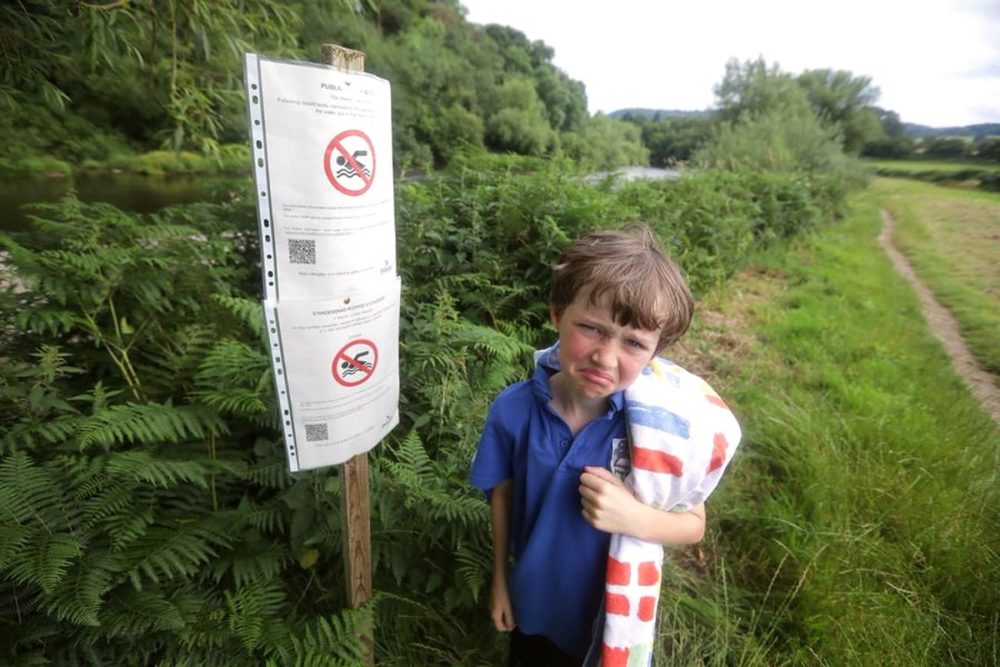Concern over bacteria levels in popular bathing spot

Gavin McEwan Local Democracy Reporter
A stretch of a river that was designated a bathing water only last month has had to close to swimmers due to potentially lethal bugs in the water.
Friends of the River Wye campaigners had put pressure on Natural Resources Wales (NRW) to give the designation to The Warren, just west of Hay-on-Wye, a popular bathing spot.
A consequence of this, a first for river waters in Wales, is that the quality of the bathing water must be tested regularly between May and September for pollutants.
But the first of these tests, taken on July 10, revealed high levels of bacteria, with levels of Enterococcus and E. coli respectively at levels of more than five and seven times the safe limit for bathing.
Both are potential pathogens which can cause a range of stomach diseases.
Adverse effects
NRW and Powys County Council then closed off the stretch to bathers until further notice.
Local councillor Gareth Ratcliffe said the move “will have adverse effects on both local residents and visitors alike”, and has called on NRW and council officials to investigate the pollution source.
Coun Radcliffe added that while the river had previously been tested for phosphates, considered the most environmentally damaging pollutant to the river, “the changes in status to bathing have resulted in a wider test by NRW which has highlighted the bacteria issue”.
The discovery of high levels of potentially harmful bugs at the first attempt “raises a lot of questions that we now need answers to”, he said.
Tests of the river water will continue to be taken every two weeks.
A Friends of the River Wye spokesperson said: “We are far from surprised that they were found at this much-beloved place.
“Surely both Welsh and UK governments, and the agencies tasked by them to defend our environment, can no longer ignore the issue of rampant pollution.”
They suggested the bacteria could be from human sewage, animal waste or both, adding it was “deeply concerning, whatever the source”.
Support our Nation today
For the price of a cup of coffee a month you can help us create an independent, not-for-profit, national news service for the people of Wales, by the people of Wales.





